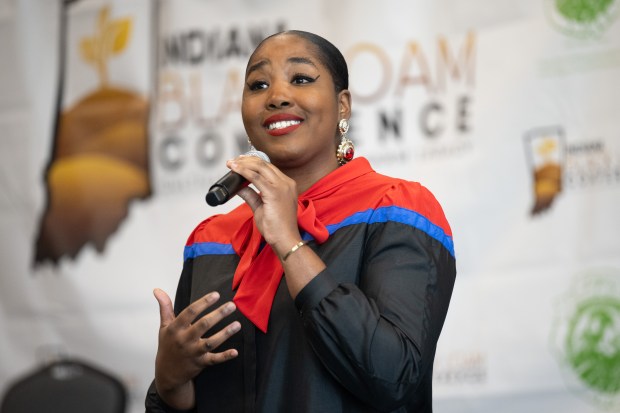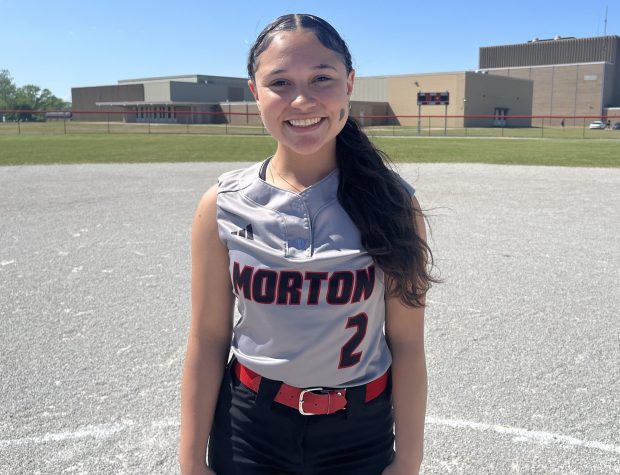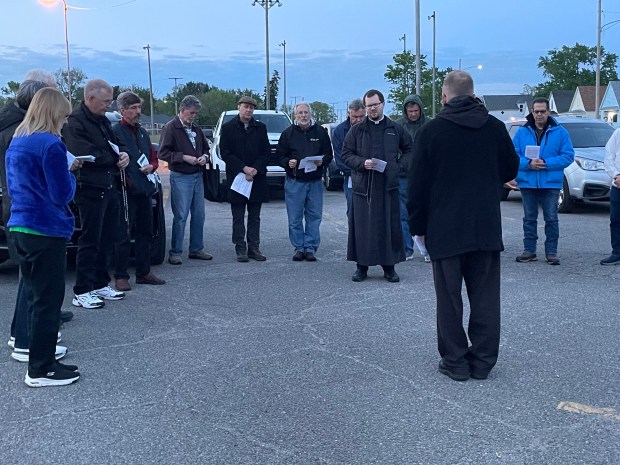Hope, resiliency and opportunity were the message shared Thursday with Black farmers from around the Midwest who participated in the third Black Loam Conference.
About 100 farmers attended the event hosted by Denise Jamerson and Legacy Taste of the Garden, which works to support black farmers and connect them with the resources they need to thrive.
“I want you all to know today that there is urgency. There is urgency to be able to uplift everything that is happening, to be able to share our needs and our stories and to garner more resources and support,” Mya Price said during the event, held at the Dean and Barbara White Community Center in Merrillville.
Price, director of the Food Security Equity Impact Fund for Feeding America, said in her keynote address to attendees that Black farmers have sculpted the nation.
“Today I stand before this esteemed gathering with a kaleidoscope of emotions…thinking about the legacy passed down to us. I have unwavering respect of the journey that led to this moment,” Price said.
Price said as someone growing up in Kentucky, she never realized the power of being able to be in Washington, D.C. working for Feeding America.
“It was in Kentucky where I learned the value of the lessons of stewardship, the essence of community and embracing sustainability,” Price said. “I went in firsthand with an unwavering dedication for farmers who through generations have been silent guardians of generations.
“If we are able to come together as a collective, we’re able to drive impacts. We are able to drive so much power that is beyond ourselves. That in itself is what is happening in America today. We stand as testament to the spirit of Black farmers. As we stand here today, as I stand here before you, I really want you think about the power you bring as individuals in this room,” Price said.
Price asked the farmers to think about their hope for the future; what it means to be resilient and what opportunities look like today and in the future.
“How do we drive some of these opportunities,” Price asked.
Through the Food Security Equity Impact Fund Price said she has been able to bring the needed assistance to farmers to ensure their sustainability and help increase food equity in the communities that need it the most.
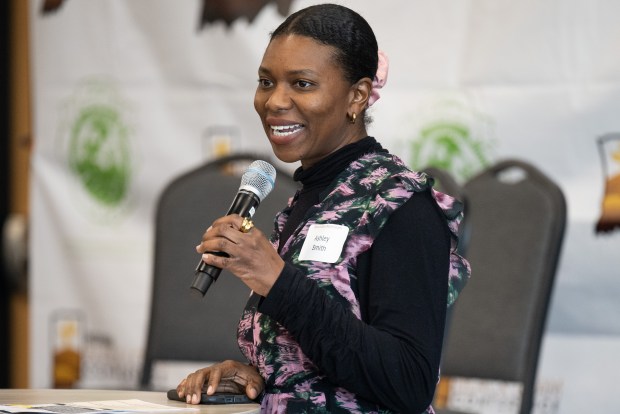
She shared the story of a five-generation Louisiana farm family with a love of the land they continued to work regardless of the challenges.
“Despite their passion for farming, their reality is their operation isn’t sustainable,” Price said. One of the owners works a full-time job outside of the farm to cover expenses. Each day he returns from his full-time job to work the farm. The goals of the Food Security Equity Impact Fund are to help farmers like this become sustainable, she said.
Black farmers often face unfair challenges other farmers do not such as discrimination and inequitable business practices. They are often not informed about opportunities they could have had, she said.
Working with the Second Harvest Food Bank, Price said the farm began providing fresh local produce to food pantries in the area. Through the organization they were able to invest in the farm and help the family continue the amazing work they do, she continued.
“We are (investing) in a way that really drives and addresses systemic inequities happening around black farmers not only in Louisiana but across the nation. Resiliency as part of this is incredibly important,” Price said.
Helping black farmers helps black communities and a lot of that is now taking place through things like community-supported agriculture, farmers markets and direct-to-consumer sales strategies.
“Black farmers have always been the heart of what is happening across this nation,” Price said.
She touted the local story of the Rev. Curtis Whittaker and Faith Farms & Orchard in Gary. Last week, Whittaker cut the ribbon on Faith Fresh Frozen, a flash-frozen produce operation that will help make the most of everything grown at the farm. Produce will be flash-frozen at the site and provided to consumers.
Twenty percent of the food processed at the facility will be provided to the Food Bank of Northwest Indiana. The remaining 80% will help create the microenterprise that will keep the operation sustainable, Whittaker said.
The operation was made possible through a $750,000 from the Food Equity Impact Fund.
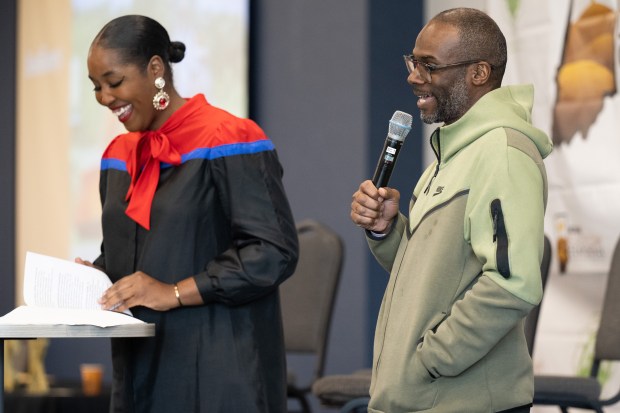
“We took a blighted space in Gary and gave it new life,” Whittaker said.
A huge component of the project was ensuring that the work done was done within the community, a specification written into the grant. All of the contractors were local Black and brown people. Whittaker said he has been able to hire some people from the neighborhood to work at the facility where they earn a living wage of $20 an hour.
“It doesn’t make sense to get the dollars if you can’t spend those dollars in our community,” Whittaker said.
With his platform and voice Whittaker said his goal is to help other people.
“Our goal is to do a number of things. With our platform and voice, we have not just about us help other people,” he said.
Price pledged her ongoing support and sharing the resources black farmers need to thrive.
“I’m here to support opportunities, drive investment and help you all create opportunities,” Price said. “We’re going to be looking for projects that are really advancing the mission to further innovation and community new transformation and solutions.”
“My goal is to support community-based effort models and to do it in a way that advances equity across communities, changing policy and changing what policies need to be changed,” Price said.
Jamerson said the Black Loam Conference continues to grow each year. This year the event was moved to the Merrillville location to accommodate the growing number of attendees who came from places like Illinois, Kentucky, and throughout Indiana.
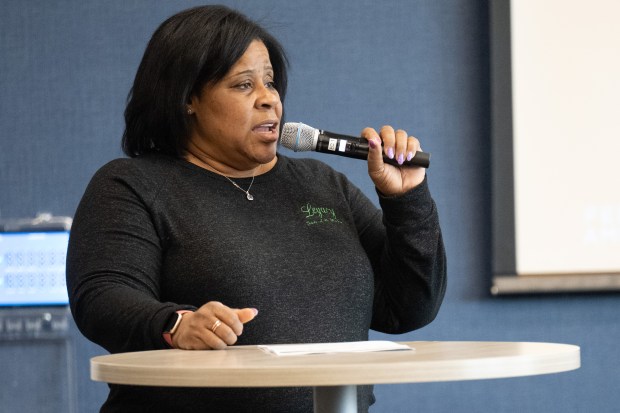
“This year our focus was on needs, on focusing on mastering the craft of the business,” Jamerson said.
Representatives from a variety of agencies such as Feeding America, the Food Bank of Northwest Indiana and the USDA were on hand to provide information and connect farmers with resources.
“I’m looking forward to seeing the event grow more,” Jamerson said.
cnapoleon@chicagotribune.com


